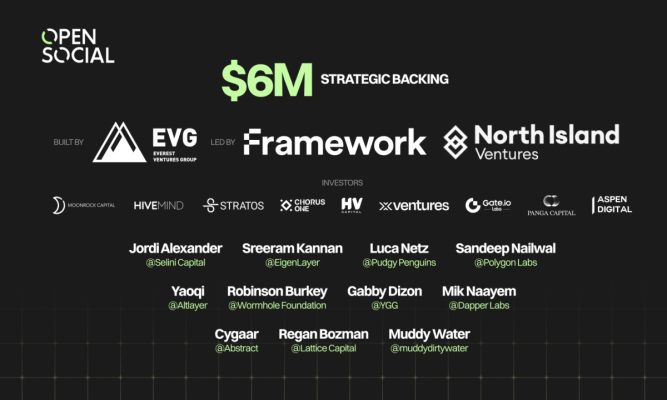After transforming and improving several significant industries, blockchain technology is now advancing a range of innovative solutions in the healthcare field.
Its contributions are invaluable for patients and ailing bureaucratic systems, providing better security and accessibility to patient files and required treatments. The technology improves anonymous genome sequencing, delivers rapid biological data on-demand, and is a key component of the eHealth architecture.
The true potential of blockchain technology in healthcare is yet to be determined, but significant progress is already visible.
Genetic and Health Record Safekeeping
Imagine a world where patients can be admitted to the nearest hospital and where quick cross-border exchanges of prescriptions and insurance details enable you to get medical assistance in a foreign country.
An advanced HSX API platform is already making this a reality by safekeeping more than a million health records for Estonia’s eHealth Authority. Since March 2017, this platform has guaranteed data integrity while verifying genetic and health records.
The platform operated by Guardtime Health can conduct a full provable audit trail, interoperability between systems, and compliance integration. Medical certificates can be forwarded electronically. Guardtime’s cross-border data exchange also extends to Finland, where it enables automatic transfers of insurance details and prescriptions.
The development company has around 150 experienced cryptographers, developers, and security experts working on the HSX API platform.
Patient-sensitive records with genetic info are stored on a blockchain for safekeeping and maximum anonymity, similar to how crypto exchanges handle finances. This system benefits patients, labs, hospitals, and regulators as the API encrypts, digitally signs, and sends FHIR-standard databases.
There are more features planned in the future, like collaborative multi-party computation, network-wide GDPR compliance, and identity reconciliation. Meanwhile, Guardtime is working on blockchain healthcare development with several organizations and governments, including multiple pharmaceutical companies, the Hungarian government, and several Chinese private hospitals.
Blockchain Genetic Sequencing
The last few years witnessed the emergence of several companies that adopted a unique business model, which is designed to deliver affordable genetic sequencing with the help of blockchain technology.
One of those is the Massachusetts-based Nebula Genomics. The company is working with a genome sequencing startup, Veritas Genetics, and a Hong Kong-based partnership company, Longenesis.
The approach to Nebula Marketplace is designed to address concerns about the sale of personal health data to third parties. Robert Nielsen, the managing director at one of the venture capital companies backing Nebula Genomics, stated that this decentralized system will secure data and streamline its availability to researchers.
Blockchain technology will enable buyers to get and protect genomic data via the Nebula marketplace. This secure and decentralized marketplace for genomic data enables consumers to receive compensation for their health data through a crypto token-based payment system.
Patients and users of blockchain-based genome sequencing also stand to gain a great deal from Nebula. The technology can provide valuable DNA info to researchers, facilitating new medical breakthroughs.
Moreover, consumers can gain easy access to affordable DNA tests for cancer risks, analysis, and prevention. Typically, these tests cost anywhere between $300 and $5,000. However, Nebula users will get tokens that they can use to acquire genome sequencing data.
As genome sequencing becomes increasingly affordable to the broader public, blockchain-based sequencing is certain to surge in popularity. In 2003, the first-ever sequencing of the whole human genome cost more than $2 billion. But DNA sequencing heavyweight Illumina promises that the entire process will one day cost a mere $100 thanks to notable technological advances.
Health Data Exchange
The healthcare industry is constantly evolving, but barriers to data exchanges have remained a persistent challenge over the years. This is why a refined commitment to advancing interoperability is critical to facilitating universal access to health data.
Enter Patientory. This is a blockchain-based app platform that provides better protection and easier access to health data while empowering users with actionable insights.
As an app, Patientory facilitates instant communication between health providers and patients. They can use the app to sync health data such as blood pressure and allergies on all connected devices. Moreover, users can track their visits to the doctor, medical insurance details, bills, prescriptions, and vaccinations/immunizations. Since the start of the pandemic, the Patientory app has allowed users to voluntarily report if they are experiencing COVID-19 symptoms or have tested positive for the virus.
As a blockchain platform, Patientory employs tokens or PTOY, a digital currency that powers and secures the PTOYMatrix network. The blockchain acts as a health information exchange center for validation that reduces operational and transactional costs.
There are more than 84 million tokens in circulation, and the price is hovering around $0.011 per token. In total, there will be 100,020,000 tokens, and the blockchain is compliant with the Health Insurance Portability and Accountability Act or HIPAA.
Every user receives a specific free space to store data on the PTOYMatrix blockchain network, with the option to buy more data storage from hospital systems’ nodes. They can also buy more PTOY coins through crypto exchanges.
Healthcare companies can make payments once smart contracts with medical insurance organizations are finalized and the value-based model metrics hammered out. Patientory’s blockchain platform uses medical supply chain mapping that helps with product distribution. It can also assist the government in locating and utilizing businesses that have necessary medical supplies and help hospitals speed up logistics.
Chrissa McFarlane, CEO of an Atlanta-based company responsible for the development of Patientory, claims that the primary purpose of this technology is to provide the necessary tools to keep the global population healthy. The company also helps find frontliners and speeds up credential validation by collaborating with certifying authorities and institutions.
Healthcare AI Platform
Artificial intelligence apps in medicine have become remarkably reliable tools for streamlining medical documentation and infrastructure. One of the more prominent names in this field is Doc.ai. It is a conversational AI platform where patients can ask for opinions on pathology, genetics, and mental health results.
The AI technology relies on an edge-learning network to run deep learning analysis and create medical insights based on specific results, pathology, and genome. Meanwhile, blockchain-based tech is still in place because the creators want Doc.ai to remain decentralized, allowing users to own their data rather than companies.
Doc.ai starts analyzing when users provide their health records, data from social networks, and wearable devices. The AI analyzes all data and draws conclusions. Doc.ai will preemptively ask the user questions if vital medical info is needed. These questions can relate to anything from administered vaccines to prescriptions.
Since this is a conversational AI, users can also ask their questions. Doc.ai has a vast data pool of already answered inquiries and understands most specific health-based questions. Thanks to computational linguistics, it will naturally provide answers, go over results, and reach conclusions.
The entrepreneurial couple Walter and Sam De Brouwer founded this technology in 2016. Walter De Brouwer hopes the AI technology will alleviate some of the current challenges stemming from a shortage of doctors.
Today, Doc.ai is an essential part of the digital health company, Sharecare, which acquired the AI platform in 2021. It allows medical organizations to give their patients access to medical AI to consult about the state of their health.
Medicine Tracking Blockchain Tool
The architecture behind healthcare supply chains is highly complex and generally spans countless borders and an exhaustive list of organizations. This level of complexity makes the supply chains vulnerable to everything from counterfeit drugs to the dissemination of inaccurate information. This can have financial consequences and negatively affect people’s health. As such, traceability and authenticity are crucial ingredients in these supply chains, and one particular blockchain platform offers some unique advantages.
MediLedger Network is a secure decentralized blockchain and peer-to-peer network with IoT systems that monitors and tracks prescription drugs to identify counterfeit meds. It’s also helping to improve logistics, reduce discrepancies, introduce lower costs, and remove counterfeit meds from the supply chain.
The blockchain is compliant with the Drug Supply Chain Security Act or DSCSA and works with smart supply chains. It connects pharmaceutical manufacturers and distributors and enables them to track and trace prescriptions to prevent illicit activity.
The San Francisco-based Chronicled partnered with the MediLedger Project in 2017 to improve drug traceability and accountability by relying on blockchain technology and IoT systems. These are critical aspects when dealing with sensitive healthcare products.
In November 2021, leading healthcare supplier, FFF Enterprise, joined the MediLedger Network. The company is working with Chronicled to remove chargeback errors among its group purchasing organization and pharmaceutical supplier trading partners. Chronicled will also work on improving FFF’s pricing accuracy.
The benefit for dispenser customers is that the medicine procurement process is simplified across the US thanks to the blockchain real-time alignment. It will also reduce time spent on resolving disputes.
Open-Sourced Health Record System
Having medical records scattered on different systems and formats isn’t only inconvenient, but it’s also dangerous. That’s why some companies are using advanced technologies to bring together data from different sources and enable the creation of intelligent health records. New digital ledger technology gives patients power over their medical data and removes complications caused by overburdened medical bureaucracies.
Iryo Network allows patients to keep the data unified and secure. They can easily share these health records with medical professionals who can access the same system from any place in the world.
The blockchain system is built on a zero-knowledge data repository, which guarantees security for sensitive medical records. Access is exclusively controlled by patients who can adjust accessibility features to include hospitals, doctors, or other organizations.
In short, these features allow patients to fully customize access to their health data. The blockchain system follows OpenEHR medical standards and has open-source principles.
Hospitals, medical professionals, and researchers connected via the Iryo ledger give Iryo tokens to patients who grant them access to medical data. Patients can use these tokens to quickly and easily pay for medical services of their choice.
One of the end goals is to make stored information highly compatible with health apps on the Iryo network and integrate this network into global medical storage systems. That way, future Iryo-certified hospitals will offer patients a greater degree of security and convenience.
However, the core objective behind this technology is to reduce the hassle of transferring medical records from one doctor to another, as is done in the profoundly fractured legacy system. It will give patients more control over health records since they now have little say in medical data exchanges in many countries.
Iryo is a Slovenian blockchain startup company that partnered with the NGO Walk With Me. Together, they are trying to improve the healthcare IT infrastructure in refugee camps in the Middle East and Africa.
Improving Healthcare One Block at a Time
In recent years, the healthcare industry, especially the sectors tasked with handling patient reports, has become far slower and more inundated. The best solution is blockchain technology, which provides the most sophisticated protection and verification solutions that will revolutionize the entire healthcare industry. The biggest beneficiaries are the patients who will have an easier time getting their medications while enjoying better access to their records and professional analysis.

